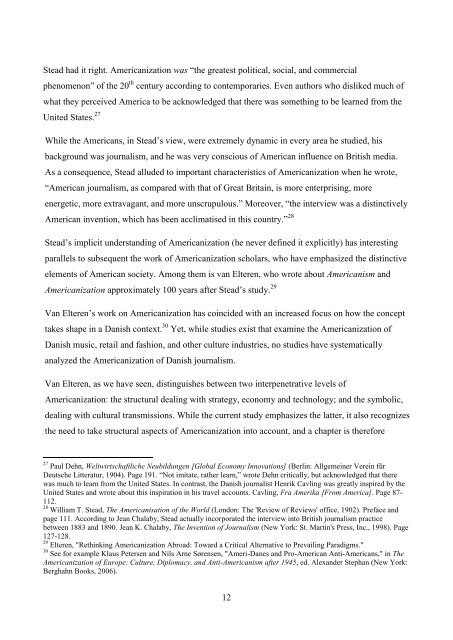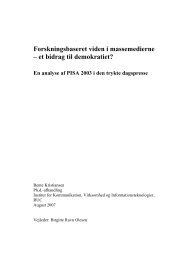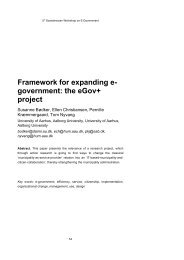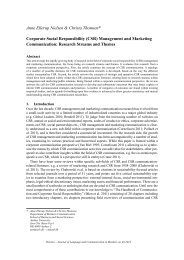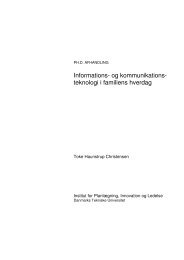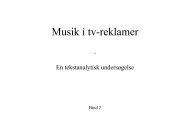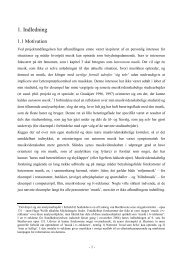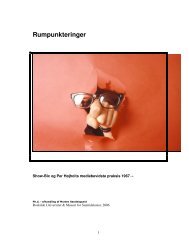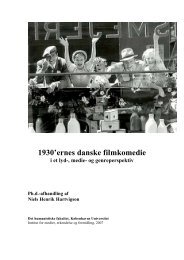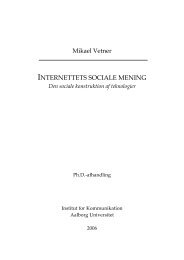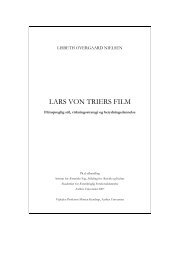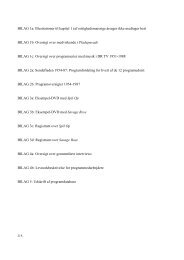The Jeremiad Over Journalism
The Jeremiad Over Journalism
The Jeremiad Over Journalism
You also want an ePaper? Increase the reach of your titles
YUMPU automatically turns print PDFs into web optimized ePapers that Google loves.
Stead had it right. Americanization was ―the greatest political, social, and commercial<br />
phenomenon‖ of the 20 th century according to contemporaries. Even authors who disliked much of<br />
what they perceived America to be acknowledged that there was something to be learned from the<br />
United States. 27<br />
While the Americans, in Stead‘s view, were extremely dynamic in every area he studied, his<br />
background was journalism, and he was very conscious of American influence on British media.<br />
As a consequence, Stead alluded to important characteristics of Americanization when he wrote,<br />
―American journalism, as compared with that of Great Britain, is more enterprising, more<br />
energetic, more extravagant, and more unscrupulous.‖ Moreover, ―the interview was a distinctively<br />
American invention, which has been acclimatised in this country.‖ 28<br />
Stead‘s implicit understanding of Americanization (he never defined it explicitly) has interesting<br />
parallels to subsequent the work of Americanization scholars, who have emphasized the distinctive<br />
elements of American society. Among them is van Elteren, who wrote about Americanism and<br />
Americanization approximately 100 years after Stead‘s study. 29<br />
Van Elteren‘s work on Americanization has coincided with an increased focus on how the concept<br />
takes shape in a Danish context. 30 Yet, while studies exist that examine the Americanization of<br />
Danish music, retail and fashion, and other culture industries, no studies have systematically<br />
analyzed the Americanization of Danish journalism.<br />
Van Elteren, as we have seen, distinguishes between two interpenetrative levels of<br />
Americanization: the structural dealing with strategy, economy and technology; and the symbolic,<br />
dealing with cultural transmissions. While the current study emphasizes the latter, it also recognizes<br />
the need to take structural aspects of Americanization into account, and a chapter is therefore<br />
27 Paul Dehn, Weltwirtschaftliche Neubildungen [Global Economy Innovations] (Berlin: Allgemeiner Verein für<br />
Deutsche Litteratur, 1904). Page 191. ―Not imitate, rather learn,‖ wrote Dehn critically, but acknowledged that there<br />
was much to learn from the United States. In contrast, the Danish journalist Henrik Cavling was greatly inspired by the<br />
United States and wrote about this inspiration in his travel accounts. Cavling, Fra Amerika [From America]. Page 87-<br />
112.<br />
28 William T. Stead, <strong>The</strong> Americanisation of the World (London: <strong>The</strong> 'Review of Reviews' office, 1902). Preface and<br />
page 111. According to Jean Chalaby, Stead actually incorporated the interview into British journalism practice<br />
between 1883 and 1890. Jean K. Chalaby, <strong>The</strong> Invention of <strong>Journalism</strong> (New York: St. Martin's Press, Inc., 1998). Page<br />
127-128.<br />
29 Elteren, "Rethinking Americanization Abroad: Toward a Critical Alternative to Prevailing Paradigms."<br />
30 See for example Klaus Petersen and Nils Arne Sørensen, "Ameri-Danes and Pro-American Anti-Americans," in <strong>The</strong><br />
Americanization of Europe: Culture, Diplomacy, and Anti-Americanism after 1945, ed. Alexander Stephan (New York:<br />
Berghahn Books, 2006).<br />
12


